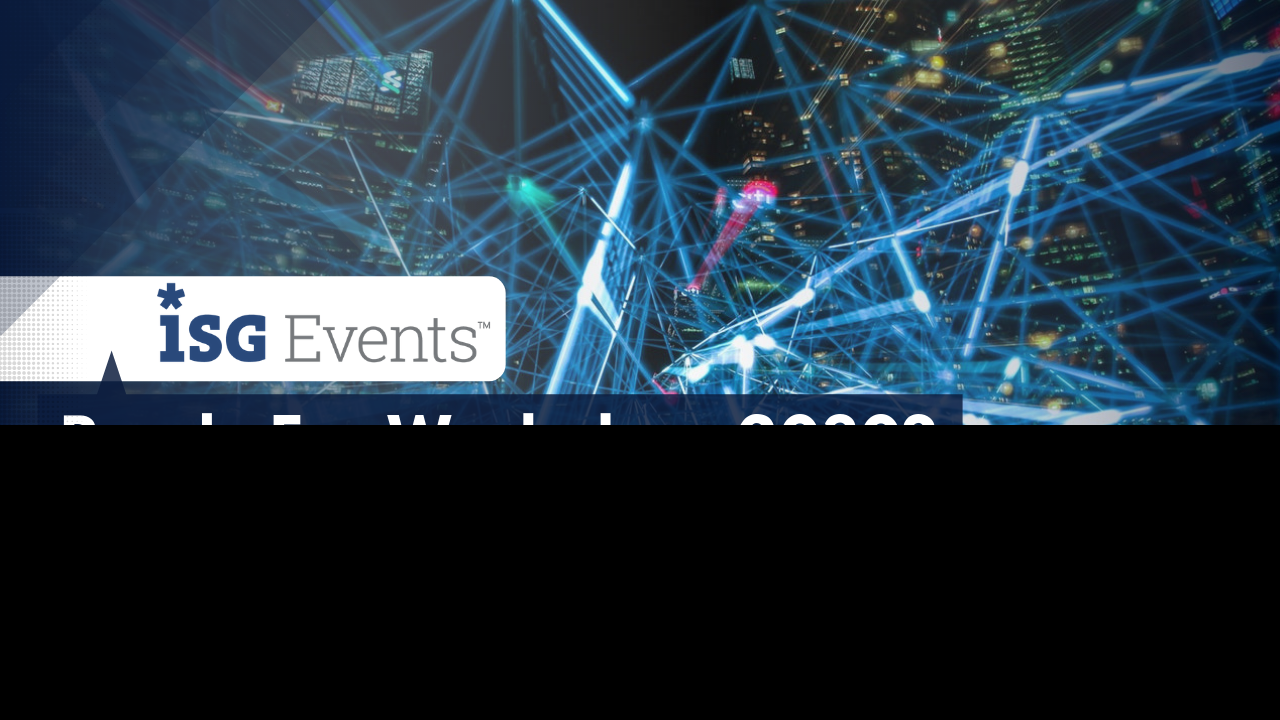- The Future Workplace Summit took place in New York City, March 17-18th.
- During the summit industry experts argued that emerging technologies like AI, predictive analytics, and subcutaneous devices will dramatically reshape the workplace experience.
- Consumer and employee loyalty will increasingly focus on experience and convenience rather than brand and company.
As technology continues to speed up the pace of business, its influence will dramatically reshape the workplace experience, industry experts told an audience of workplace and human resources professionals at the ISG Future Workplace Summit in New York City in March.
Leaders from the fields of technology, human resources and workplace management shared insights from recent research over the two-day conference.
Key takeaways from day 1
ISG partner Scott Furlong emphasized the importance of looking beyond the near future to meet targets. Furlong also argued that:
- Devices that integrate multiple technologies are game-changers. Devices such as Disney’s Magic Band incorporate multiple uses: room key, park ticket, payment device, GPS, etc. Disney also captures and stores immense amounts of data, which, combined with cognitive computing power, is used for revenue generation and can dramatically improve employee and customer experience.
- Loyalty to a company and a brand is shifting to loyalty to experience and convenience. Workplaces need to change to meet the consumer’s expectations of convenience and loyalty they currently experience in their personal life. The convenience provided by digital assistants such as Alexa may drive the workforce to value the experience over traditional motivators of compensation, company pride, company reputation.
- The workforce will be a hybrid of human labor and digital labor. Most of us will have an AI assistant to help schedule meetings and help our personal lives.
- Behavior science will be part of the war for talent of organizations. The HR team will include anthropologists, behavioral scientists, and psychologists who’ll use advanced analytics to better understand the employee experience and help win the war on talent.
- Our bodies will carry the sensors and dashboards that will display key information. Rather than referring to a PC or mobile devices, we will access key information that is visible on our arm. Communication will be thru subcutaneous devices powered by our body. Those same devices can be used for security, time and attendance, and to configure room settings to personal preferences.
- Predictive analytics will improve productivity. Desktops, laptops and other devices will be monitored. Cued by predictive analytics and leading indicators, teams will be automatically dispatched to fix malfunctioning devices. Allowing enterprise to proactively update hardware or systems and get ahead of failure will help maintain workplace productivity.
- Radar can be applied to drive goods and services through warehouses and distribution centers. The same radar being used for autonomous vehicles today can help deliver office supplies to individual workspaces.
- Use of new technologies for safety and security in the workplace. Leveraging the discovery that Wi-Fi bounces off water and our bodies are 70% water, a security system was created that runs on a router that can sense if an intruder has entered a space. Similarly, it can serve safety functions inferring that if water on the ground is not moving, someone has fallen down and needs help.
- Enterprise will utilize algorithms to advance autonomous decision-making. In the same way that Amazon and Netflix use algorithm-based decision-making models to suggest new books, movies and other products, enterprises can use certain indicators to determine whether to move forward with a particular decision.
AI will become part of our lives. We will find new applications for AI throughout the workplace, from making travel plans to ordering materials and more. We will be designing for AI, not trying to retrofit things. New products will be designed to work with the mobile population.



 Dr. Gleb Tsipursky – The Office Whisperer
Dr. Gleb Tsipursky – The Office Whisperer Nirit Cohen – WorkFutures
Nirit Cohen – WorkFutures Angela Howard – Culture Expert
Angela Howard – Culture Expert Drew Jones – Design & Innovation
Drew Jones – Design & Innovation Jonathan Price – CRE & Flex Expert
Jonathan Price – CRE & Flex Expert








